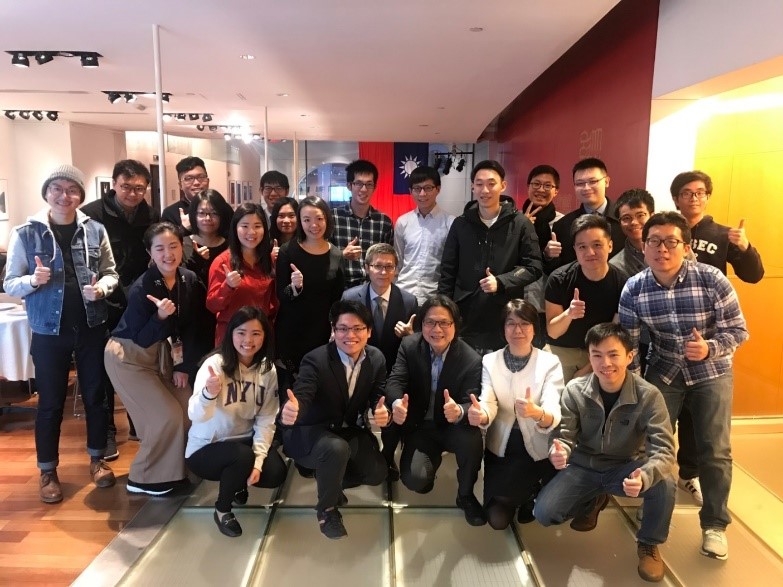Former Minister of Education Prof. Yeh Jiunn-Rong speaks to Taiwanese students at TECO New York

Professor Yeh Jiunn-rong, the former Minister of Education in Taiwan was the guest speaker at a public talk the Taipei Economic and Cultural Office (TECO) in New York on February 22, jointly hosted by the Education Division of TECO and the Federation of Taiwanese Student Associations in New York. It was open to the public and attended by many students from Taiwan currently studying at universities in the greater New York area. Professor Yeh is a professor in the College of Law at National Taiwan University and he has also served in government, including as Minister of the Interior from 2016–2018, and as Minister of Education in 2018.
The evening talk was titled After the Election: From the 8.17 Communique to the will of 8.17 million people. The “8.17 Communique” was a communique signed between the U.S. and China on August 17, 1982 during the period of martial law in Taiwan, which was lifted in 1987 and followed by democratization. The “will of 8.17 million people” refers to the number of votes cast for President Tsai Ing-wen when she was reelected in the democratic election held in January, 2020.
At the time of Taiwan’s transition into democracy in 1987, Professor Yeh was studying law at Yale University on a scholarship from Taiwan’s Ministry of Education. He talked about his experiences as a law student in the United States during the late 1980s, and about the subsequent democratic developments in Taiwan that paralleled his subsequent career.
After graduating from Yale, he returned to Taiwan with a strong desire to contribute to the democratization process. He became a legal scholar specializing in environmental law, constitutional law, and the constitutional process. His work contributed to the many important changes in the ROC constitution that have facilitated the democratic transition of Taiwan’s political system, both through constitutional amendments passed by the Legislature and through Constitutional Interpretations issued by the Council of Grand Justices, the constitutional court responsible for interpreting the ROC constitution.
These constitutional changes paved the way for key milestones such as the 1992 popular election for national legislators, the first direct presidential election in 1996, and the first transfer of the presidency to an opposition party in 2000. More recently, the Council of Grand Justices issued a Constitutional Interpretation in May 2017 which declared prohibiting same-sex marriage was unconstitutional and paved the way for Taiwan to become the first country in Asia to legalize same-sex marriage.
Professor Yeh finished his very interesting and informative talk, by expressing his confidence that the Constitution would continue to be able to facilitate democratic changes that address social issues and then answered questions posed by the audience.